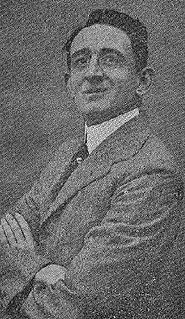A Quote by Fulton Oursler
In this one book are the two most interesting personalities in the whole world - God and yourself. The Bible is the story of God and man, a love story in which you and I must write our own ending, our unfinished autobiography of the creature and the Creator.
Related Quotes
Despite the natural belittling of one's self, the doubts, the insecurities, we have to wake up to the realisation that we all write our own autobiography, we are the authors of our life story. Realising that, write a good story with your life and make sure to write yourself as the protagonist. Be the hero of your journey.
Man depends on God for all things: God depends on man for one. Without man's love God does not exist as God, only as creator, and love is the one thing no one, not even God himself, can command. It is a free gift or it is nothing. And it is most itself, most free, when it is offered in spite of suffering, of injustice, and of death . . . The justification of the injustice of the universe is not our blind acceptance of God's inexplicable will, nor our trust in God's love, his dark and incomprehensible love, for us, but our human love, notwithstanding anything, for him.
I wrote The Jesus Storybook Bible because I wanted children to know the Bible isn't mainly about you and what you're supposed to be doing. It's about God and what he has done. It's the story of how God loves his children and comes to rescue them. It's a Love Story. It's an Adventure Story. And at the center of the story is a baby - the child upon whom everything would depend. And every single story in the Bible whispers his name.
The Bible is one long story of God meeting our rebellion with His rescue, our sin with His salvation, our guilt with His grace, our badness with His goodness. The overwhelming focus of the Bible is not the work of the redeemed but the work of the Redeemer. Which means that the Bible is not first a recipe for Christian living but a revelation book of Jesus who is the answer to our un-Christian living.
Perhaps there's another, much larger story behind the printed one, a story that changes just as our own world does. And the letters on the page tell us only as much as we'd see peering through a keyhole. Perhaps the story in the book is just the lid on a pan: It always stays the same, but underneath there's a whole world that goes on - developing and changing like our own world.
So that when you come to read the actual Bible you have a lay of the land. And you come to the Bible knowing that it's not mostly a book about you and what you're supposed to be doing. It's most of all a story. It's this wonderful love story - about a God who loves his children with a wonderful, never-stopping-never-giving-up-unbreaking-always-and-forever love.
The gospel is unintelligible to most people today, especially in the West, because their own particular stories are remote from the story of creation, fall, redemption, and consummation that is narrated in the Bible. Our focus is introspective and narrow, confided to our own immediate knowledge, experience, and intuition. Trying desperately to get others, including God, to make us happy, we cannot seem to catch a glimpse of the real story that gives us a meaningful role.
Too many writers think that all you need to do is write well-but that's only part of what a good book is. Above all, a good book tells a good story. Focus on the story first. Ask yourself, 'Will other people find this story so interesting that they will tell others about it?' Remember: A bestselling book usually follows a simple rule, 'It's a wonderful story, wonderfully told'; not, 'It's a wonderfully told story.'
There's no substitute for the power of a personal story. The true stories of God redeeming a broken life shoot like arrows straight to our hearts and remind us that God wants to do the same life changing work in our lives. I love how one story can impact another story, causing a ripple effect of change if we let it.
In our whole life melody the music is broken off here and there by rests, and we foolishly think we have come to the end of time. God sends a time of forced leisure, a time of sickness and disappointed plans, and makes a sudden pause in the hymns of our lives, and we lament that our voice must be silent and our part missing in the music which ever goes up to the ear of our Creator. Not without design does God write the music of our lives. Be it ours to learn the time and not be dismayed at the rests. If we look up, God will beat the time for us.
There is a marvelous story of a man who once stood before God, his heart breaking from the pain and injustice in the world. "Dear God." he cried out, "look at all the suffering, the anguish and distress in your world. Why don't you send help?" God responded,"I did send help. I sent you." When we tell our children that story, we must tell them that each one of them was sent to help repair the broken world-and that it is not the task of an instant or of a year, but of a lifetime.































